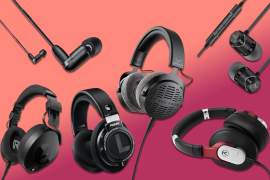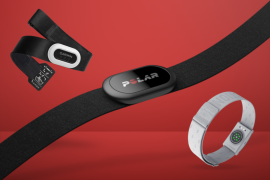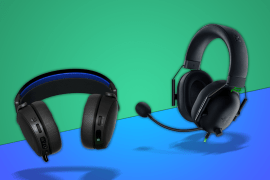Best heart rate fitness tracker 2025: track your ticker in style
The best heart rate monitoring fitness trackers to track your ticker in style
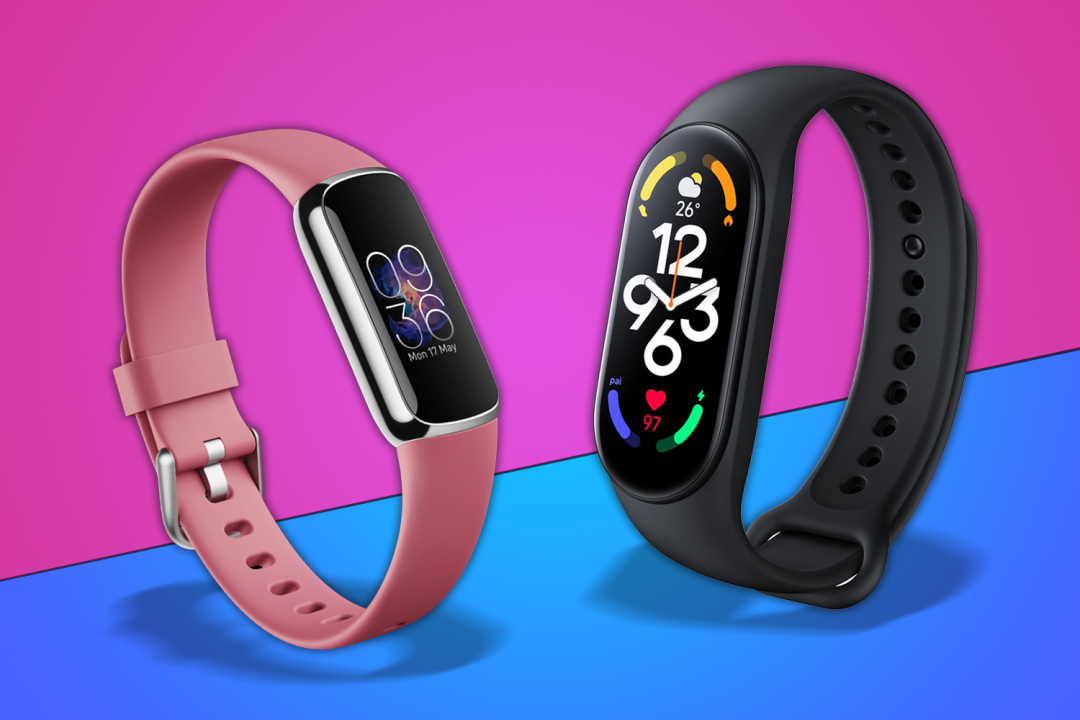
Looking for the best heart rate fitness tracker? If you care about keeping a close eye on your ticker, the good news is that there are plenty of fitness trackers with heart rate monitors that can do that for you. Also check out our guide to the best fitness trackers overall, too.
Whether it’s monitoring heart rate activity throughout the day and night to give you a better sense of your current level of fitness, or whether you need to know how hard you went on a big bike ride, most trackers are now well-equipped to dish out those real-time HR stats.
We’ve tested lots of the latest fitness trackers that promise to deliver heart rate metrics you can rely on, pitting them against best-in-class devices including the heart rate monitor chest strap, commonly considered the gold standard for heart rate monitoring. Whether you care about all-day HR or you want something to keep up with your high-intensity workouts, these are the best fitness trackers with a heart rate monitor packed in that impressed us the most.
What’s the best heart rate fitness tracker?
We think the best fitness tracker with heart rate monitor you can buy is the Fitbit Charge 5 (buy now). It’s built to track your heart while at the gym, but along with Fitbit’s optical heart rate sensor, there’s also an ECG sensor that can be used to assess your heart rate for the disorder atrial fibrillation giving it added serious health tracking credentials.
Other best heart rate fitness tracker recommendations
Is the Fitbit Charge 5 not right for you? Here are three of the other best heart rate fitness trackers we’d recommend:
The Xiaomi Mi Band 7 (buy now) offers a slim design and secure fit with an optical HR sensor that really impresses if you care about heart rate stats when not put to the high-intensity workout test.
The Fitbit Charge 5 (buy now) tracks your heart rate all day and night, but also automatically recognises when you start exercising. At this point the Active Zone Minutes function starts, showing when during the activity you worked your hardest.
The Fitbit Inspire 3 (buy now) is Fitbit’s cheapest tracker. It’s also comfortable to take to bed and captures insightful heart rate metrics with the added bonus of giving you Fitbit’s best battery life and a much-welcomed new AMOLED display.
The best fitness trackers with a heart rate monitor you can buy today:
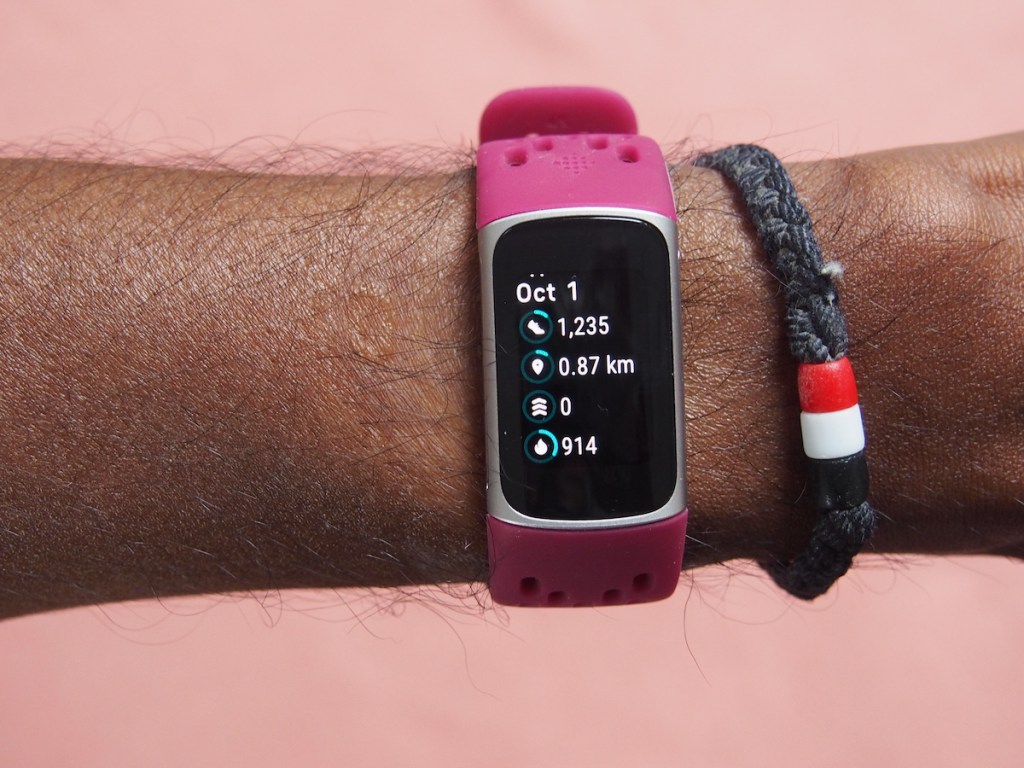
1. Fitbit Charge 5
Stuff Verdict
Built to better handle some time in the gym, the Charge 5 is a tracker that offers good HR stats when it’s time to sweat.
Pros
- Finally gets a screen upgrade
- Comfortable to wear 24/7
- Easy to use interface
- Solid heart rate monitoring
Cons
- Data insights locked behind Fitbit Premium
- Iffy sports tracking accuracy
| Fitbit Charge 5 | |
|---|---|
| Platform | iOS and Android |
| Display | 1.04in AMOLED |
| Waterproofing | 5ATM |
| Battery life | Up to 7 days |
| GPS | Yes, built-in |
| Blood oxygen sensor | Yes |
Fitbit’s flagship fitness tracker is a fitness tracker at heart, but unlike its Luxe and Inspire 3 trackers, does have a little more in its armoury in terms of its HR powers.
Along with Fitbit’s optical heart rate sensor, there’s also an ECG sensor that can be used to assess your heart rate for the disorder atrial fibrillation giving it added serious health tracking credentials.
That HR sensor can reliably track heart rate throughout the day and also capture it when you go to bed to offer a more detailed look at that sleep time. It does also spring into action when it’s exercise time and can help power features like Active Zone Minutes to show you exactly when you’re working your hardest. It also fuels Fitbit’s Daily Readiness Scores to make sure you’re working out at the best times, but you need to be signed up to Fitbit’s Premium subscription to get access to it.
Add in built-in GPS to let you leave your phone behind when you head outside to sweat it out and a good-sized touchscreen display to make use of some useful smartwatch features and the Charge 5 is a tracker packed with all of the good stuff.
- Read more: Fitbit Charge 5 review
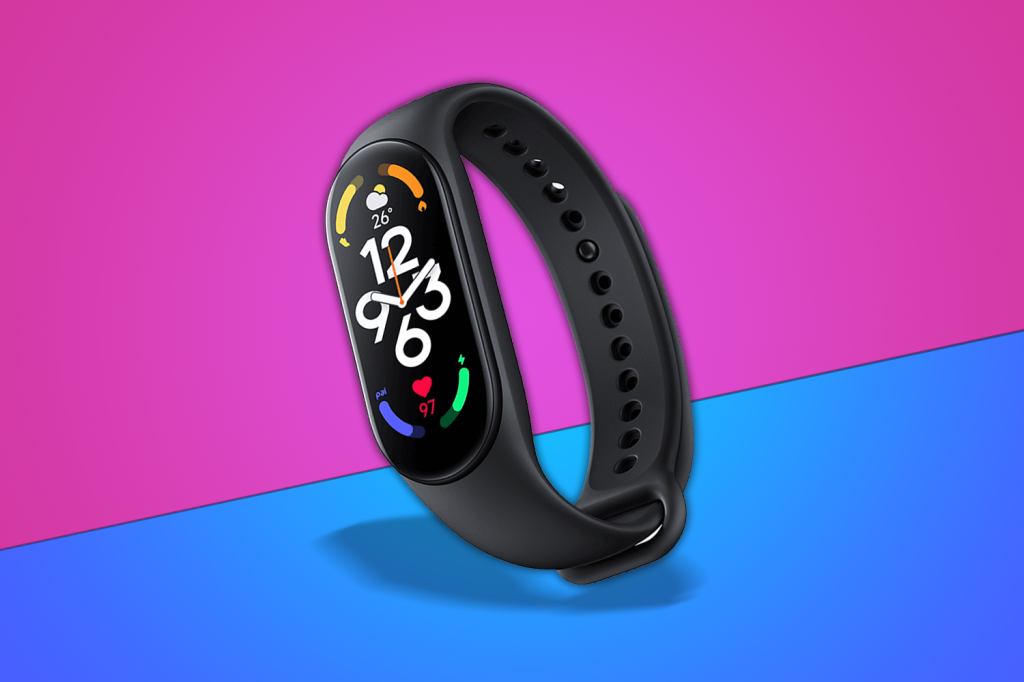
2. Xiaomi Mi Band 7
Stuff Verdict
If you care about what heart rate can tell you about your general wellbeing, the Mi Band 7 offers a sensor and fit to do that in a reliable manner
Pros
- Slim design
- Vibrant display
- Strong battery life
Cons
- No integrated GPS
- Lacks NFC
| Xiaomi Mi Band 7 | |
|---|---|
| Platform | iOS and Android |
| Display | 1.62in AMOLED |
| Waterproofing | 5ATM |
| Battery life | Up to 14 days |
| GPS | No, requires smartphone |
| Blood oxygen sensor | Yes |
Xiaomi’s latest generation Mi Band retains most of what made the Band 6 a standout tracker including an optical HR sensor that when it comes to telling you your resting heart rate and daily heart rate ranges, is definitely capable of doing that.
It can also use that sensor to capture heart rate variability measurements to generate insights about your current stress levels and will also indicate when heart rate has abnormally spiked or dropped during the day. It’ll also dish out VO2 Max estimates for those that take their training a touch more seriously.
The reliability of those continuous readings is clearly helped by the slim design, which ensures that the sensor sits close against the wrist to get the best data. It’s not quite the same story when using it to track heart rate during exercise, but it is capable of giving you good HR stats with strong battery life and a vibrant AMOLED display to keep an eye on your heart.

3. Fitbit Inspire 3
Stuff Verdict
Fitbit’s cheapest tracker still makes room for its reliable HR sensor tech and now packs a nice AMOLED to view your stats on.
Pros
- Attractive price
- Sleep-friendly design
- AMOLED display
Cons
- Some features require a subscription
- Tiny screen
| Fitbit Inspire 3 | |
|---|---|
| Platform | iOS and Android |
| Display | 0.7in AMOLED |
| Waterproofing | 5ATM |
| Battery life | Up to 10 days |
| GPS | No, requires smartphone |
| Blood oxygen sensor | Yes |
The Inspire 3 is Fitbit’s cheapest fitness tracker, but that doesn’t mean you make big compromises on peering down at useful HR stats, particularly when monitoring your heart through the day and night.
Like Fitbit’s other trackers, it relies on its PurePulse optical sensor to deliver metrics like resting heart rate and exercise heart rate and powers features like Active Zone Minutes and Cardio Fitness Score for those that want to know how hard they’re working out when they work out.
That sensor is also used to better understand stress and when to exercise, but it’s the time you take the Inspire 3 to bed where it performs best capturing that heart rate data. That’s helped by a slim, sleep-friendly design and now the Inspire finally has an AMOLED screen to make it much nicer to look at your stats on the move or when you’ve just got up and out of bed.
- Read more: Fitbit Inspire 3 review
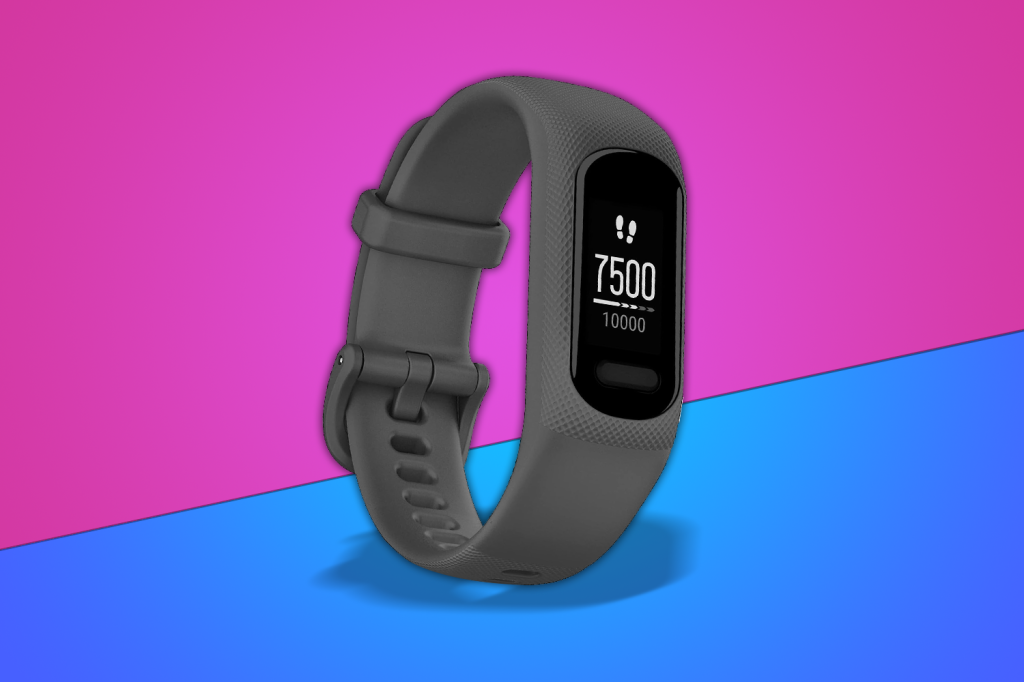
4. Garmin Vivosmart 5
Stuff Verdict
A comfortable fitness tracker that’ll give you HR stats to keep you in tune with just how fit and healthy you really are.
Pros
- Lightweight, comfortable fit
- Body Battery monitor
- Comprehensive tracking features
Cons
- Not as sleek as its predecessor
- Slightly fiddly interface
- No built-in GPS tracking
| Garmin Vivosmart 5 | |
|---|---|
| Platform | iOS and Android |
| Display | 0.7in OLED, greyscale |
| Waterproofing | 5ATM |
| Battery life | Up to 7 days |
| GPS | No, requires smartphone |
| Blood oxygen sensor | Yes |
While the Vivosmart 5 has lost some of the Vivosmart 4’s sleek design appeal, it does still make room for a heart rate sensor that can tell you a fair bit about your general health and wellness.
They’re not medical heart-based insights, but Garmin’s fitness tracker can recognise when heart rate is too high or low when you’re less active and uses its Elevate sensor to better break down sleep stages at night to push out richer sleep stats.
While it unsurprisingly lacks the more meaty sports tracking features on offer on Garmin’s watches it does still find room for its useful heart rate-fuelled Body Battery energy monitor to tell you when to take a rest day and Fitness Age metric to tell you if your body is younger than your age.
Add to that Garmin’s subtly motivating fitness tracking features and week-long battery to make the Vivosmart 5 a heart rate tracking tracker worth considering.
- Read more: Garmin Vivosmart 5 review
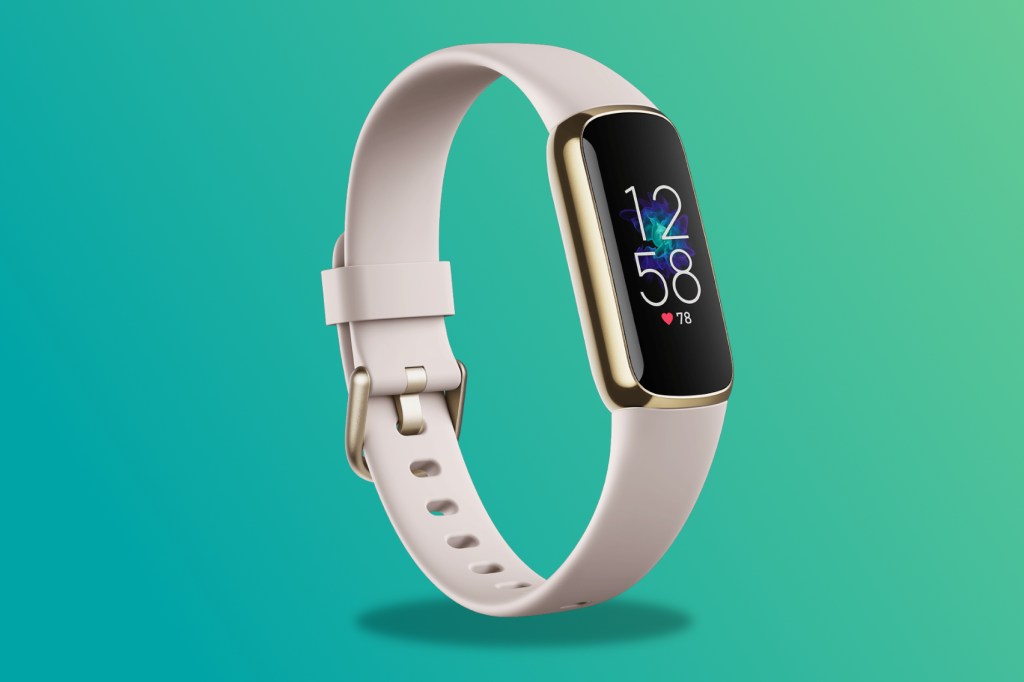
5. Fitbit Luxe
Stuff Verdict
Fitbit packs its most attractive fitness tracker with a HR monitor that’s built to deliver useful and insightful heart rate stats, day and night.
Pros
- Stylish design
- AMOLED display
Cons
- Some features require subscription
- Battery life under a week
| Fitbit Luxe | |
|---|---|
| Platform | iOS and Android |
| Display | 0.75in AMOLED |
| Waterproofing | 5ATM |
| Battery life | Up to five days |
| GPS | No, requires smartphone |
| Blood oxygen sensor | Yes |
The Luxe is arguably Fitbit’s best-looking fitness tracker, especially if you prefer something that feels more like a bracelet than that typical sports band look. Underneath that stylish exterior lies Fitbit’s PurePulse optical heart rate sensor to track resting heart rate, help estimate calories burned and bolster sleep stats to help you better understand your general health and fitness levels.
It might not look like it can track your exercise time, but it can use that HR sensor to generate Active Zone Minutes scores to show when you worked your hardest and if you sign up for Fitbit’s Premium subscription, will also unlock its Daily Readiness Score insights to tell you when to throw your gym gear on or take a rest day.
It also uses that sensor to capture heart rate variability measurements to better understand the stresses you’re putting on your body and is fit to send notifications if it recognises irregular heart rate rhythms, which could be an indication of a more serious health problem.
It performs best when you’re continuously keeping tabs on your heart rate and will do that in a look that nicely breaks from the fitness tracker design norm.
Want a smartwatch instead? Here’s our guide to the best smartwatches.
How to choose the best heart rate fitness tracker
Design, comfort, specs and battery life all play a key role in finding the best heart rate fitness tracker for you. Aesthetics are of course subjective and comfort will depend on the size and exact shape of your wrist, plus whether you want the fitness tracker to slip beneath a shirt sleeve or not. Specification is an obvious factor, with some fitness trackers packed full of features to offer a more complete overview of your health. Do you expect to use every feature? Or are you better off saving some money and picking a fitness tracker that’s better suited to your precise needs.
There’s also the sticky subject of subscriptions. Fitbit Premium costs £7.99 a month and includes access to workouts, meditation guides, recipes and advanced sleep tracking, among other things. Do you need all this? Thankfully Fitbit offers a free trial to help you make up your mind.
Lastly, there’s battery life. Some fitness trackers need their battery filling after five days, while others claim to last seven, 10 or even a massive 14 days between charges. How they actually perform will depend on how you use them and whether you rely on them to track your sleep every night, or not. Fitting a 10-minute charge into your daily routine could be enough to keep that battery nicely topped-up.
How we test the best heart rate fitness trackers
Like all products, we thoroughly test fitness trackers to ensure we give our readers a verdict they can trust. We set the trackers up, connect them to our phones, slap them onto our wrists and live with them for days or even weeks at a time.
We go walking and running with them, take them to the gym, take a dip in the pool and test their sleep-tracking capabilities before reaching a verdict.
For more information on Stuff’s rating and review process, read our page on how we test products.

